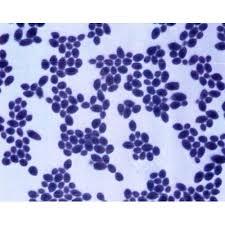What are the healthiest fermented foods?

It is one of the most frequently asked questions about India, is "why doesn't India have a cheese tradition"? Or "why doesn't India have a wine tradition"? Which is really a variation of the first question. The premise is not true of course because India does have both indigenous cheese and winemaking in different regions. However, when you compare them with dominant, "mainstream" traditions in Europe, and even central Asia, you have to admit that there is some basis to the perception.
Both wine and cheese are known as the product of fermentation which is a process that has been under the increased scrutiny in world food for the last few years. Many nutritionists are recommending fermented food products for a healthy gut. Fermented foods have lately been a hot topic among a lot of people. Fermentation is basically a natural anaerobic process where the microorganisms like bacteria and yeast break down the carbs into the organic acids, like alcohol or gases. This acid preserves food and converts them to the fermented food naturally. Apart from that, fermented foods have a nice taste, texture, and aroma. The naturally fermented foods can help in accelerating the growth of good bacteria which in turn can give a healthy and strengthened gut. This process is not just for preserving the foods, but also adding a choke-full of nutrition and probiotics.
In ancient times, fermentation was available only as an option to the people to naturally preserve the food, eliminate toxins, and improve the taste and aroma. But, nowadays, it has been used impulsively because of its potential health benefits. Each bite of fermented food equals the trillions of good bacteria in the gut which is more than what an artificial probiotic supplement can provide.
What is Fermentation?
Fermentation is basically a chemical process that uses microorganisms such as bacteria and yeast and involves the utilization of carbohydrates in the absence of oxygen in order to produce organic acids, alcohol, or gases, depending on the nature of sugar in food. Fermentation is used for preservation in a process that produces lactic acid that is usually available in sour foods like pickled cucumbers, kimchi, and yogurt, as well as in alcoholic beverages like wine and beer.
Fermented foods are basically filled with beneficial bacteria that help in boosting the “good” bacteria in the digestive system. Another amazing thing about fermented foods is that they are budget-friendly and will help secure food for a longer period.
Here are a few super-healthy and gut-friendly fermented foods that you would love to consume:
a) Indian Cheese
One theory of why we don’t have more amount of cheese is because of the pan-Indian food traditions that are against splitting milk in Ayurveda. However, despite that, Paneer was invented.
Even curds, hung curds and other forms of coagulated milk solids can form sort of basic cheeses. When we make Paneer from curd which has been quite common among tradition in north Indian homes, we use fermentation. This is because the presence of lactic acid bacteria is produced during the lactic acid fermentation and they are responsible for the sourness and improved safety of the food products.
b) Yogurt
Many nutritionists agree that the bacteria can help to improve the activity in the gut and that’s why there are a number of fermented drinks and products being pushed into the market as superfoods. A simple bowl of yogurt after or with your meal can achieve the same amount of purpose. In fact, yogurt can also be a common home remedy to soothe inflamed digestive systems and upset stomachs among Indians.
c) Rice and Dal Batters
In many southern states, fermented rice-and-dal batters are a part of the daily diets. Dosas and idlis are made and the most typical breakfast items which might have inadvertently functioned in a medicinal way to improve the digestive environment, though of course in the tropical heat.
d) Pickles
Homemade, naturally fermented pickles are great for your gut health. They have tons of antioxidants, vitamins, and even minerals. However, a store-bought jar of fermented pickles might not contain these qualities.
Probiotic in medicines: Sporlac probiotic medicine
Around 1964, when soldiers were falling sick, the discovery of this strain showed potential health benefits. The advantages of this Lactobacillus strain against loose bowels and constipation were proved that year and after 3 decades, Lactobacillus also known as SPORLAC still stands as one of the most trusted probiotics to date.
Microbial Food Ingredients
There are many enzymes from bacteria, yeasts, molds, and from plant and mammalian sources which are currently used for processing foods and food ingredients. Some of the yeast species used for the production of proteins are from genera Candida, Saccharomyces, Torulopsis, and Methylophilus. Enzymes are produced either by surface culture on solid substrates or by submerged culture using liquid substrates. The success of commercial enzyme production hugely depends on maximizing the activity of the microorganism and minimizing costs of the substrate, incubation, and recovery procedures.
Post Your Ad Here
Comments